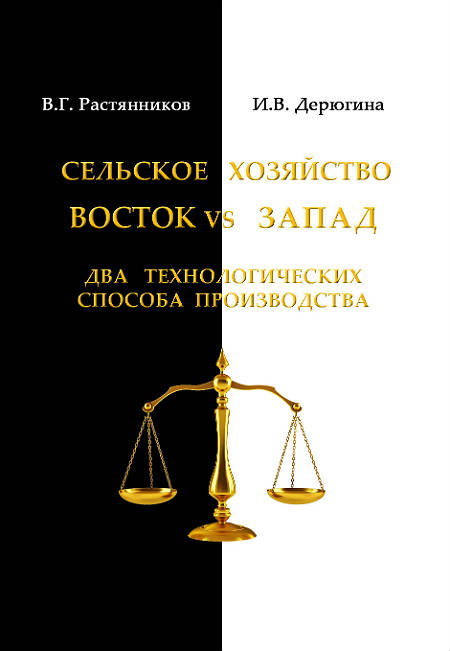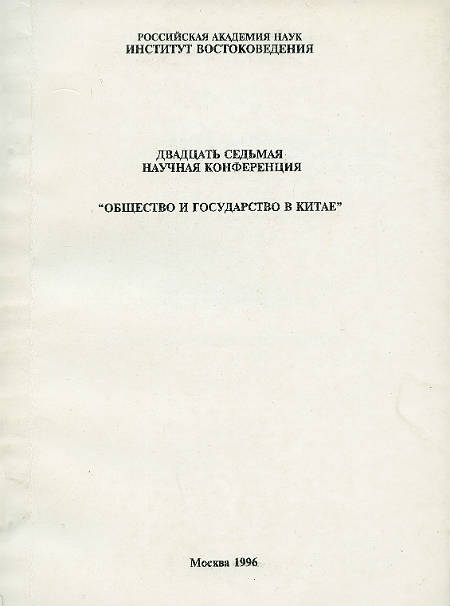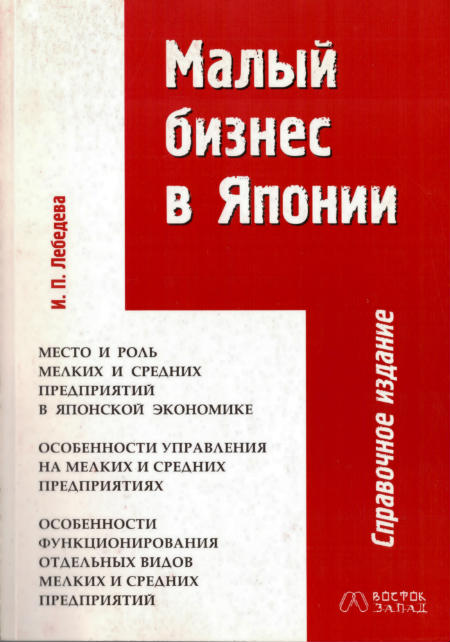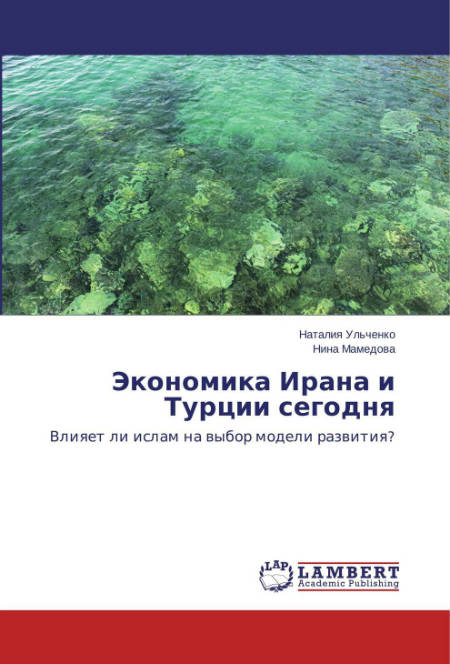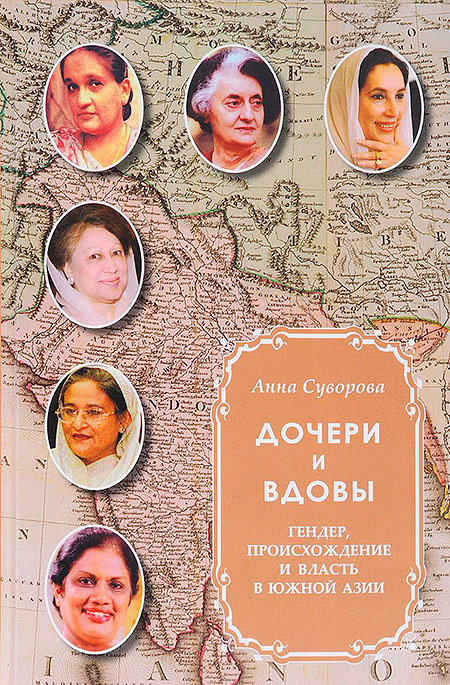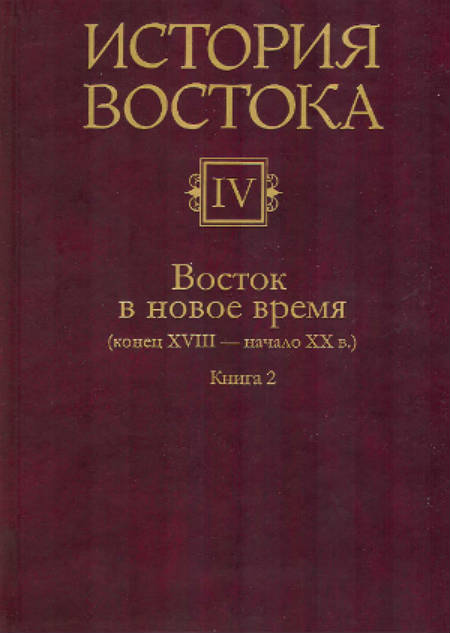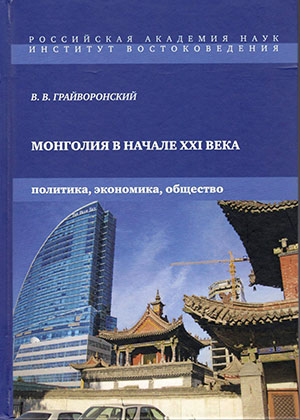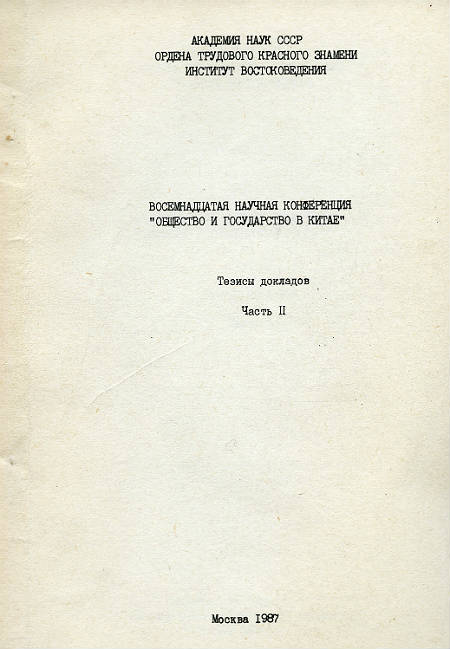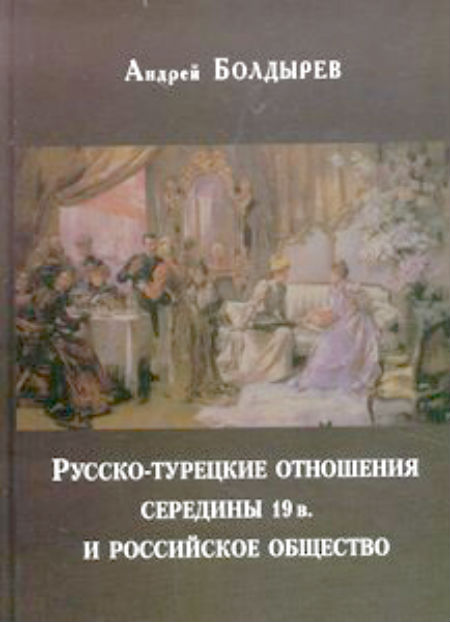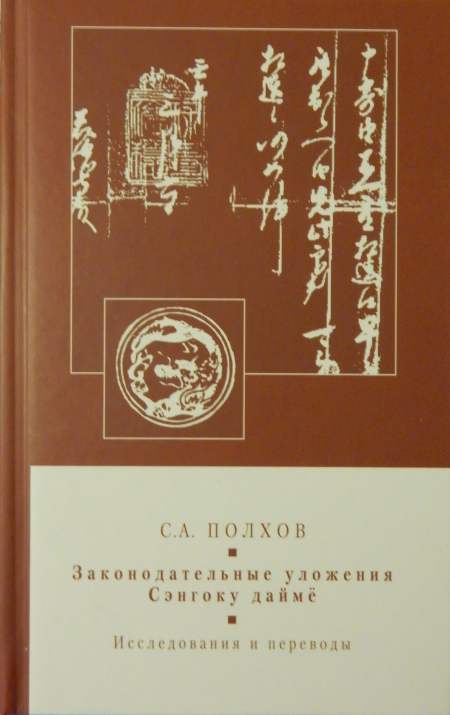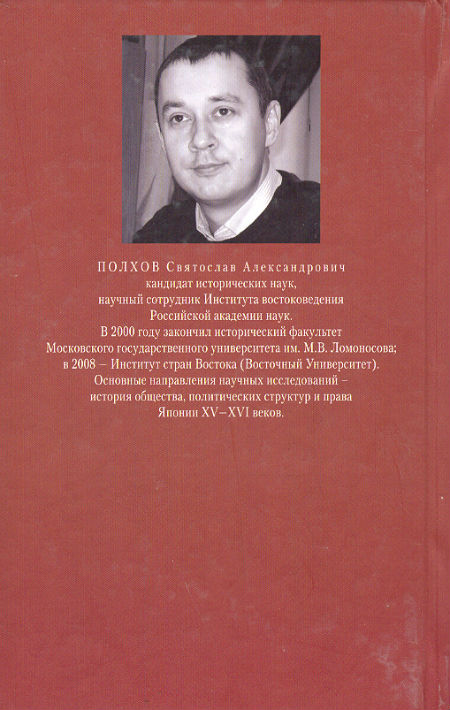Book
The Law Codes of Sengoku Daimyo: Studies and Translations
Editor: Molodyakova Elgena
Москва, 2015, 648 p.
There are few studies of the law codes of sengoku daimyo in the Western and Russian historical science, whereas in Japanese historiography this theme is addressed in many scholarly works (including studies by Arimitsu Yugaku, Fujiki Hisashi, Hatakeyama Ryo, Hirayama Yu, Ichimura Takao, Ike Susumu, Ikegami Hiroko, Imatani Akira, Ishii Shiro, Ishimoda Sho, Kanazawa Masayasu, Kasamatsu Hiroshi, Katsumata Shizuo, Kawaoka Tsutomu, Kobayashi Hiroshi, Kono Keiichi, Kubo Kenichiro, Kumazaki Wataru, Kuroda Motoki, Kurushima Noriko, Marushima Kazuhiro, Miura Hiroyuki, Miyajima Keiichi, Murai Shosuke, Nagahara Keiji, Nakaguchi Hisao, Nitta Ichiro, Owada Tetsuo, Sasamoto Shoji, Shimizu Katsuyuki, Shibatsuji Shunroku, Shimomura Isao, Sugawara Masako, Sugiyama Hiroshi, Takigawa Masajiro, Tsujimoto Hiroaki, Yamanaka Kyoko, Yata Toshifumi and others).
Laws of the Kamakura and Muromachi bakufu as well as decrees and court verdicts of daimyo, and customary law that existed in their domains were incorporated in the law codes of
sengoku daimyo. Direct exposure to Japanese law of Nara and Heian periods in the law codes cannot be traced. The established view about the merging in the sengoku daimyo law codes of kuge ho, buke ho, and shoen ho should be reconsidered. One can recognize the adoption of certain provisions of the kokujin ikki treaties in the bunkoku ho, but the influence of «Goseibai shikimoku» not only on legal provisions but also on the organization of the text of codes is much more noticeable. Agreements of kokujin ikki were dominated by the principles of equality, horizontal ties between participating warriors-landowners, while the legal codes of the sengoku lords demonstrated hierarchy, vertical relations of domination and subordination between the daimyo and vassals, daimyo and residents of the domain. The creators of the legal codes of XV–XVI cent. at their discretion selected appropriate bakufu laws, adapting them to the needs of new epoch. Adopted articles of «Goseibai shikimoku» in most cases were heavily modified. Revised provisions of «Goseibai shikimoku» are found more often in the texts of law codes than the laws of the Muromachi bakufu.
Compared with the laws of ritsuryo kokka Sengoku period law codes are relatively small in size, and are lacking general concepts, coherence and strict organization. In the Japanese
laws of Nara period, as well as in the establishments of the Chinese Tang period there was a consistent division of articles on administrative and civil ( ryo) and criminal ( ritsu) statutes, which is absent in bunkoku ho. Despite the fact that cruel punishments were characteristic of the criminal justice of Sengoku period, they are rarely mentioned in the codes, the types of punishments in many cases are not specified at all. The texts of bunkoku ho contain no clear hierarchy and classification of the sources of law, but the laws of daimyo had the highest power, exceeding customary law, moral norms or establishments of Ashikaga shogunate. However no code did proclaim break of relations with the bakufu, daimyo did not claim absolute independence. Even Imagawa Yoshimoto in Art. 20 of «Imagawa kanamokuroku tsuika», relating to the past, when the shogun ruled Japan and distributed the posts of military governors, called himself shugo (military governor appointed by the bakufu). Therefore bunkoku ho are wrongly regarded as declarations of independence. The daimyo did not reject sacral and political authority of tenno. However, with rare exceptions shogun and tenno are not mentioned in the legal codes. Preserved in a period of political turmoil and fragmentation, important political and symbolic bonds between the shogun, emperor, on the one hand, and the provincial lords, on the other hand, basically are not reflected in the codes.
The circumstances of the establishment of codes were different. However, the most important task of the drafters was the streamlining of the judicial system and the positioning of daimyo as chief judge and legislator within domain. Additional consideration was related to the enhancing the prestige of daimyo power. Apparently, the codes were not supposed to justify the
legitimacy of daimyo power, this theme in the texts is ignored. The idea of legitimate authority of military lords was a prerequisite for the emerging of daimyo legislation. Confucian ideas of virtuous government are not expressed clearly, their presence can be judged only by implicit references. Laws were presented first and foremost as personal will of daimyo, rather than as an
expression of the will of an abstract and impersonal «state».
There is no concept of depersonalized state in the codes. One can also argue that the power of daimyo in the codes possesses secular, profane character and is devoid of the sacred, religious halo. Bunkoku ho displayed different structure of power. The house laws of Ouchi, codes of Imagawa, Date, Takeda, Yuki represented the figure of supreme ruler, the source of orders and regulations for the vassals. The limits of the jurisdiction, restrictions on the power of the daimyo are not marked in codes, with the exception of «Rokkaku-shi sikimoku». The restraints on daimyo power as well as formalized participation of vassals in the law making, justice and governance are clearly delineated in «Rokkaku-shi sikimoku». Of all bunkoku ho only code of Rokkaku encompasses elements of «feudal» contract between overlord and his vassals. At the same time, a comparison of the data contained in the legal codes, with other sources shows that in reality the claims of the daimyo were largely limited by internal autonomy of vassal clans, that possessed hereditary land holdings and military power, and by other factors.
Codes do not represent many important directions of the sengoku daimyo internal policy: there are very few statutes concerning kandaka system or land surveys ( kenchi), by which sengoku daimyo created quite a strong vassal, territorial and administrative organization. Unlike ritsuryo legislation codes of daimyo are not based on the finished model, do not contain a coherent and radical program of transformation of the existing socio-political and economic order. The laws in this case are based on the previous legal traditions of military houses and customs of different provinces. Daimyo used the existing legal, social and political structures to strengthen his power.
In the codes a lot of articles are devoted to the regulation of relations in the vassal house.
In comparison with the laws of the Ashikaga shogunate the number of regulations dealing with the relationship between lord and vassal increased considerably. However one can find only partial description of the principles of relations between daimyo and his kashin. Codes are lacking the list of vassal services, the hierarchy of vassals etc. Basically they contained legislative regulations related to the settlement of conflicts and disputes, the administration of justice. Daimyo Imagawa, Date, Takeda, Yuki has the highest judicial, legislative and administrative power in their domains. There are no references to the authority of the Ashikaga shoguns. Daimyo appears to be an autocratic overlord, interfering in the internal affairs of vassal clans, punishing or suspending from service, confiscating possessions of the guilty, settling disputes among the vassals. However, the text of codes reflects only those aspects of sengoku daimyo power, which characterize them as powerful rulers. The limits of daimyo power are not articulated. Vassals, the main pillar of daimyo power, were linked to him by bonds of a personal nature, permeated with reciprocity: a dedicated service was «exchanged» on the benefits and awards. The consistent application of the law to kashin was beset with unavoidable exceptions due to bonds between daimyo and the warriors.
The laws represent daimyo not only as a lord of the vassals, but as a ruler of the territorial political entity, acting as public authority. Provisions of codes are not confined to shujo ho. The articles of bunkoku ho cover a wide range of issues pertaining to the administration of the domain, many clauses are addressed to the various social strata and institutions (peasants, merchants, temples and shrines, and so on). In the codes daimyo appears as guardian of internal public and religious peace and order. Daimyo is trying to control the contacts of the people of his domain with the outside world. Many articles of bunkoku ho regulate judicial system, criminal justice, all that is the responsibility of public authorities, towering above the interests of certain social groups. Daimyo court was focused primarily on the claims of vassals, but in Imagawa, Takeda, Rokkaku codes one can find declarations about fair and impartial litigation system open to common people. Access to the text of the laws, apparently, was limited to vassals, first of all members of daimyo council and his officials, which carried out judicial and administrative functions. Bunkoku ho are addressed primarily to the military elite, whose members were involved in their writing. However, that does not mean that the codes applied to the people of domain indirectly, and the implementation of laws was always entrusted to powerful vassals. Social status of buyers and sellers, lenders and debtors whose litigation is regulated in the codes often is not specified, there is no reason to believe that they were only vassals of daimyo. According to bunkoku ho articles trade is often regulated by daimyo officials. In «Koshu hatto-no shidai» daimyo collects taxes from the peasant communities regardless of whether they belong to his domain or the land holdings of his vassals. The codes prohibited to deprive of land plots peasants regularly performing their duties. There is reason to believe that certain laws, for example, provisions about the rules of the payment of munebetsusen in Takeda domain, which are described in «Koshu hatto-no shidai», were known in peasant villages.
Law codes did not express only the interests of the ruling social class – the military elite. The political goals of sengoku daimyo and their vassals did not coincide completely. Provincial rulers sought to curtail the traditional privileges, «discipline» warriors, limiting their freedom of action. Such goals as the eradication of crime, maintaining law and order, the protection of domain from invasions of neighboring daimyo, were consistent with the interests of all social strata of domain. At the same time in the historiography the importance of peasant uprisings as one of the main factors that led to the emergence of sengoku daimyo law codes was exaggerated. According to law codes daimyo had a leading role in the administration of justice and the adoption of laws. However, the study of codes reveals that daimyo not always denied customary law at the local level. There is no absolute monopolization of judicial and police functions by sengoku lords. Centralization of the judicial system cannot be seen in the codes. To some extent codes recognized self-help and in some cases vendetta, permitted the killing of offenders by the injured party or witnesses of crimes. Master was obliged to punish his servant, or a dependent person guilty of a crime. Autonomous peasant communities, about which so much is written in Japanese and Western historiography, clearly can be seen in the «Rokkaku-shi shikimoku». In most cases peasant communities are considered as a tool of tax system, their special status is not determined.
In law codes of sengoku daimyo one cannot find a rigid social division, which was ideologically justified by Confucian scholars in the Tokugawa era (the concept of shi-no-ko-sho). Daimyo was not pursuing a consistent policy of separation of warriors ( bushi) from farmers ( hyakusho). In the ongoing war mobilization of the upper layers of the peasant community in vassalage system was an important task of provincial lords. Permanent war undoubtedly had an enormous influence on the content of codes. Constant wars and rebellions largely prevented the implementation of the bunkoku ho. Historical sources contain little information on the practical use of codes. Sengoku daimyo law codes did not become the foundation for laws of han and Tokugawa bakufu. Many daimyo who adopted bunkoku ho, disappeared during internal disturbances or were destroyed in the process of unification of Japan. These codes lost power and some of them have been long forgotten and rediscovered only in the XX cent. However, generally the continuity between legal traditions of the Sengoku period and the laws of the Tokugawa era is unquestionable.


